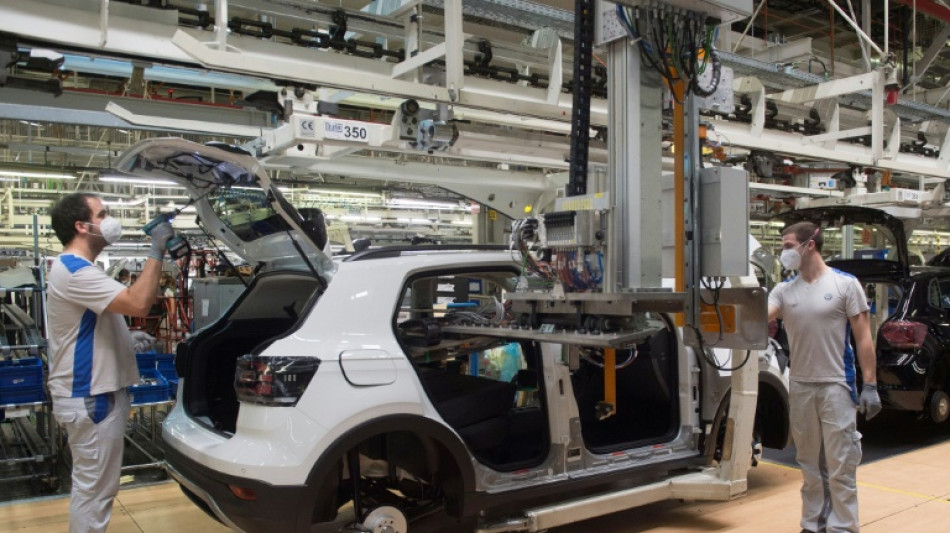
-
 Rob Reiner: Hollywood giant and political activist
Rob Reiner: Hollywood giant and political activist
-
Observers say Honduran election fair, but urge faster count
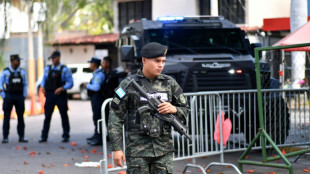
-
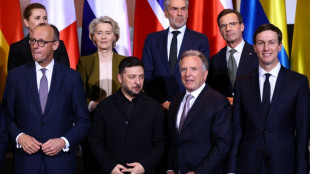 Europe proposes Ukraine peace force as Zelensky hails 'real progress' with US
Europe proposes Ukraine peace force as Zelensky hails 'real progress' with US
-
Trump condemned for saying critical filmmaker brought on own murder
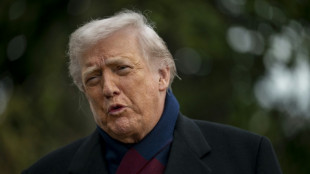
-
 US military to use Trinidad airports, on Venezuela's doorstep
US military to use Trinidad airports, on Venezuela's doorstep
-
Daughter warns China not to make Jimmy Lai a 'martyr'

-
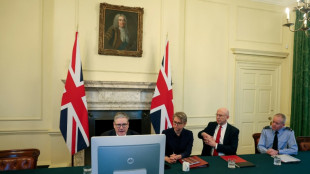 UK defence chief says 'whole nation' must meet global threats
UK defence chief says 'whole nation' must meet global threats
-
Rob Reiner's death: what we know

-
 Zelensky hails 'real progress' in Berlin talks with Trump envoys
Zelensky hails 'real progress' in Berlin talks with Trump envoys
-
Toulouse handed two-point deduction for salary cap breach

-
 Son arrested for murder of movie director Rob Reiner and wife
Son arrested for murder of movie director Rob Reiner and wife
-
Stock market optimism returns after tech selloff but Wall Street wobbles

-
 Clarke warns Scotland fans over sky-high World Cup prices
Clarke warns Scotland fans over sky-high World Cup prices
-
In Israel, Sydney attack casts shadow over Hanukkah

-
 Son arrested after Rob Reiner and wife found dead: US media
Son arrested after Rob Reiner and wife found dead: US media
-
Athletes to stay in pop-up cabins in the woods at Winter Olympics
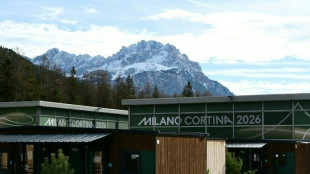
-
 England seek their own Bradman in bid for historic Ashes comeback
England seek their own Bradman in bid for historic Ashes comeback
-
Decades after Bosman, football's transfer war rages on

-
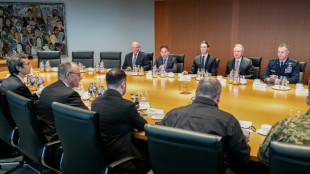 Ukraine hails 'real progress' in Zelensky's talks with US envoys
Ukraine hails 'real progress' in Zelensky's talks with US envoys
-
Nobel winner Machado suffered vertebra fracture leaving Venezuela

-
 Stock market optimism returns after tech sell-off
Stock market optimism returns after tech sell-off
-
Iran Nobel winner unwell after 'violent' arrest: supporters

-
 Police suspect murder in deaths of Hollywood giant Rob Reiner and wife
Police suspect murder in deaths of Hollywood giant Rob Reiner and wife
-
'Angry' Louvre workers' strike shuts out thousands of tourists
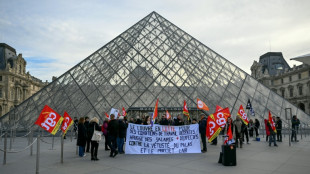
-
 EU faces key summit on using Russian assets for Ukraine
EU faces key summit on using Russian assets for Ukraine
-
Maresca committed to Chelsea despite outburst

-
 Trapped, starving and afraid in besieged Sudan city
Trapped, starving and afraid in besieged Sudan city
-
Showdown looms as EU-Mercosur deal nears finish line

-
 Messi mania peaks in India's pollution-hit capital
Messi mania peaks in India's pollution-hit capital
-
Wales captains Morgan and Lake sign for Gloucester

-
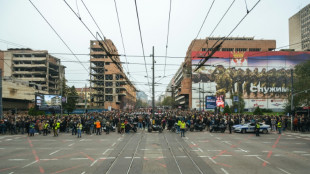 Serbian minister indicted over Kushner-linked hotel plan
Serbian minister indicted over Kushner-linked hotel plan
-
Eurovision 2026 will feature 35 countries: organisers

-
 Cambodia says Thailand bombs province home to Angkor temples
Cambodia says Thailand bombs province home to Angkor temples
-
US-Ukrainian talks resume in Berlin with territorial stakes unresolved
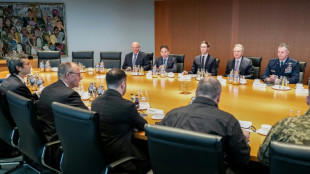
-
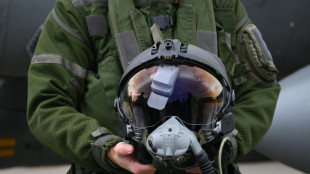 Small firms join charge to boost Europe's weapon supplies
Small firms join charge to boost Europe's weapon supplies
-
Driver behind Liverpool football parade 'horror' warned of long jail term

-
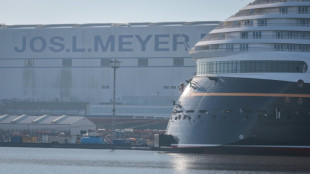 German shipyard, rescued by the state, gets mega deal
German shipyard, rescued by the state, gets mega deal
-
Flash flood kills dozens in Morocco town

-
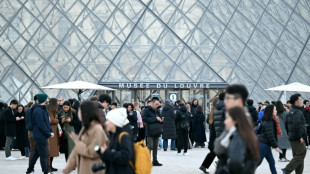 'We are angry': Louvre Museum closed as workers strike
'We are angry': Louvre Museum closed as workers strike
-
Australia to toughen gun laws as it mourns deadly Bondi attack

-
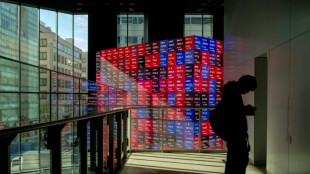 Stocks diverge ahead of central bank calls, US data
Stocks diverge ahead of central bank calls, US data
-
Wales captain Morgan to join Gloucester

-
 UK pop star Cliff Richard reveals prostate cancer treatment
UK pop star Cliff Richard reveals prostate cancer treatment
-
Mariah Carey to headline Winter Olympics opening ceremony

-
 Indonesia to revoke 22 forestry permits after deadly floods
Indonesia to revoke 22 forestry permits after deadly floods
-
Louvre Museum closed as workers strike
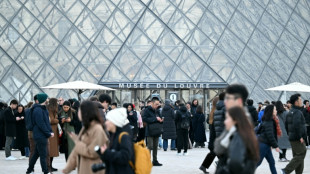
-
 Spain fines Airbnb 64 mn euros for posting banned properties
Spain fines Airbnb 64 mn euros for posting banned properties
-
Japan's only two pandas to be sent back to China
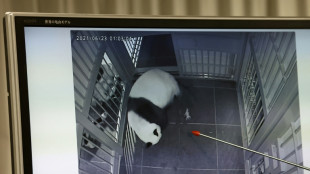
-
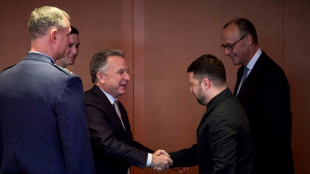 Zelensky, US envoys to push on with Ukraine talks in Berlin
Zelensky, US envoys to push on with Ukraine talks in Berlin
-
Australia to toughen gun laws after deadly Bondi shootings


Nexperia, the new crisis looming for Europe's carmakers
European automakers already buffeted by US tariffs and a rocky shift toward electric vehicles now face a new threat: a shortage of key semiconductors supplied by Chinese-owned Nexperia.
Beijing is locked in a standoff with Dutch officials who invoked a Cold War-era law in September to effectively take over the company, whose factories are in Europe.
Carmakers as well as parts suppliers have already warned of shortages that would force stoppages at production lines across the Continent.
Who is Nexperia?
The company produces relatively simple technologies such as diodes, voltage regulators and transistors that are nonetheless crucial, as vehicles increasingly rely on electronics.
The chips are mainly found in cars but also in a wide range of industrial components as well as consumer and mobile electronics like refrigerators.
It makes them in Europe before sending them to China for finishing, and are then re-exported back to European clients.
Based in the Netherlands and once part of electronics giant Philips, it was bought by Wingtech Technology of China in 2018.
But in September, the Dutch government took the unusual step of taking over the company, citing its "Goods Availability Law" of 1952 to ensure essential items.
In response, China banned any re-exports of Nexperia chips to Europe, igniting fresh geopolitical tensions.
Why is the automotive sector vulnerable?
Nexperia supplies 49 percent of the electronic components used in the European automotive industry, according to German financial daily Handelsblatt.
The European auto lobby ACEA warned this month that production would be seriously hit.
"Without these chips, European automotive suppliers cannot build the parts and components needed to supply vehicle manufacturers and this therefore threatens production stoppages," the group said.
For Germany alone, analysts at Deutsche Bank forecast a production drop of 10 percent while warning of a 30-percent cut in a "worst-case scenario".
How are automakers responding?
German auto giant Volkswagen has warned that it cannot not rule out "short term" production stoppages, while emphasising that it is searching for alternative suppliers.
Nexperia does not supply it directly but some of its parts suppliers use its chips.
Bosch, for example, says it has not yet reduced employee shifts at its German sites "but we are preparing to do so at our Salzgitter site", a spokesman told AFP.
But French parts maker Valeo said it had "visibility for the coming weeks" with regards to "all its components".
It said it had found alternatives for "95 percent of the volumes" bought each year from Nexperia, but "they haven't yet been approved by our clients".
Other suppliers?
According to OPmobility, another French parts maker, Nexperia's chips, while widely used, are not "unique" in terms of technology and therefore "easily substitutable".
But suppliers have to get the new products approved by automakers, which cannot be done quickly.
"They're looking frantically for other suppliers but these firms cannot build production capacity overnight," said Ferdinand Dudenhoeffer, director of Germany's Center Automotive Research institute.
"In the worst case this situation could go on for 12 to 18 months," he told AFP.
He added however since the disruptions cause by global lockdowns during the Covid-19 pandemic, "we've learned to pay more attention, both among general management and purchasing teams".
In any case, Dudenhoeffer said, "100 percent protection against supply disruptions is impossible -- or in any case prohibitively expensive".
A.Rodriguezv--AMWN
